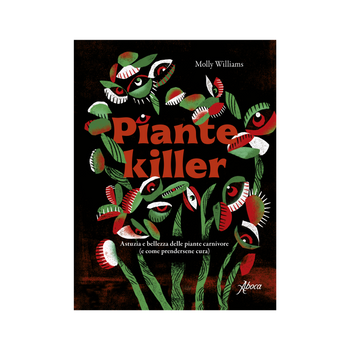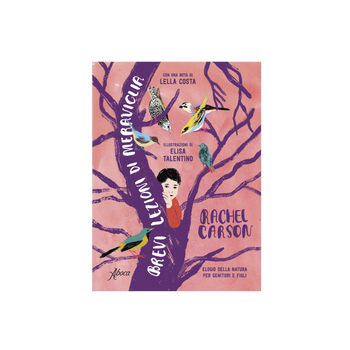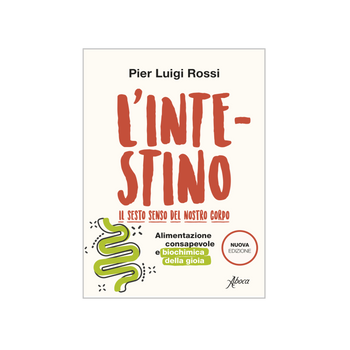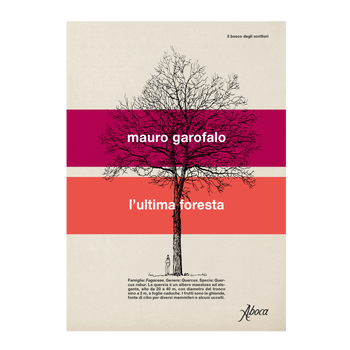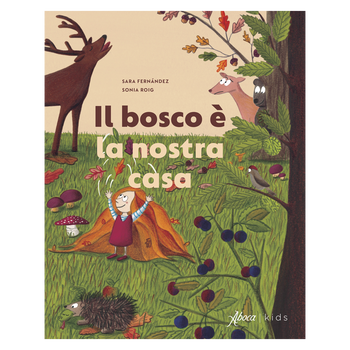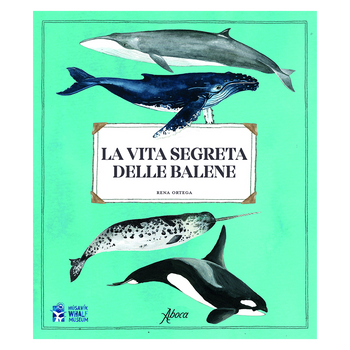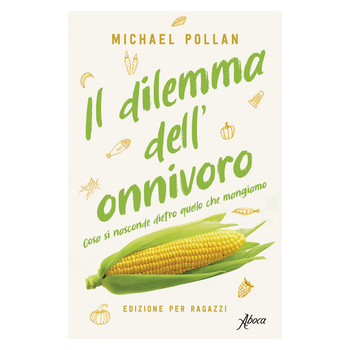You have no items in your shopping cart.
Le regine dell’abisso Le regine dell’abisso
Come la vita delle balene ci svela il nostro posto nel mondo Come la vita delle balene ci svela il nostro posto nel mondo
Rebecca Giggs Rebecca Giggs
€28,00
“Our lives are intimately connected with the fate of cetaceans. Whales help us to understand environments that we cannot see”.
“Our lives are intimately connected with the fate of cetaceans. Whales help us to understand environments that we cannot see”.
Availability:
In Stock
Sku: LIBREGABI
ISBN/EAN: 9788855231251
When writer Rebecca Giggs encountered a humpback whale stranded on the Austalian beachfront, she began to wonder how the lives of whales reflect the condition of our oceans. This was the inspiration for her multi-award winning story, acclaimed in the international press, which blends natural history, philosophy, and science to explore the world in which these “queens of the abyss” live. Giggs' masterful account explores how our understanding of whales has changed in the light of the latest technology and how they are experiencing climate change. We learn about whales so rare they have never been classified, their mysterious songs and whales that have modified the chemical composition of our planet's atmosphere. We marvel at startling facts (cetacean earwax plugs can be studied to learn about the contaminants a whale has been exposed to over its lifetime, as well as high-stress periods, perhaps caused by noise pollution or the depletion of prey) and open our eyes to crucial issues (restoring whale populations globally could be a way to reduce the concentration of carbon dioxide in the air).
We travel to Japan to board the ships that hunt whales and then delve into the deepest seas to discover how plastic pollution is also dramatically threatening the undersea environment.
In a style that echoes Rachel Carson's finest scientific literature, Rebecca Giggs provides us with a vivid exploration of the natural world, even as she addresses what it means to write about ecology at a time of environmental crisis, outlining challenges and opportunities. Most importantly, she teaches us that whales can amplify the noblest impulses of our nature and revive that part of us which is drawn in wonder to re-examine our place and power in the world.
Rebecca Giggs is an Australian author. Her articles have appeared in "The Atlantic", "The New York Times Magazine" and "Granta". Le regine dell'abisso, her debut book, won the 2021 Andrew Carnegie Medal for excellence in non-fiction was a finalist in the Kirkus and PEN/E.O. Wilson Literary Science Writing awards.
When writer Rebecca Giggs encountered a humpback whale stranded on the Austalian beachfront, she began to wonder how the lives of whales reflect the condition of our oceans. This was the inspiration for her multi-award winning story, acclaimed in the international press, which blends natural history, philosophy, and science to explore the world in which these “queens of the abyss” live. Giggs' masterful account explores how our understanding of whales has changed in the light of the latest technology and how they are experiencing climate change. We learn about whales so rare they have never been classified, their mysterious songs and whales that have modified the chemical composition of our planet's atmosphere. We marvel at startling facts (cetacean earwax plugs can be studied to learn about the contaminants a whale has been exposed to over its lifetime, as well as high-stress periods, perhaps caused by noise pollution or the depletion of prey) and open our eyes to crucial issues (restoring whale populations globally could be a way to reduce the concentration of carbon dioxide in the air).
We travel to Japan to board the ships that hunt whales and then delve into the deepest seas to discover how plastic pollution is also dramatically threatening the undersea environment.
In a style that echoes Rachel Carson's finest scientific literature, Rebecca Giggs provides us with a vivid exploration of the natural world, even as she addresses what it means to write about ecology at a time of environmental crisis, outlining challenges and opportunities. Most importantly, she teaches us that whales can amplify the noblest impulses of our nature and revive that part of us which is drawn in wonder to re-examine our place and power in the world.
Rebecca Giggs is an Australian author. Her articles have appeared in "The Atlantic", "The New York Times Magazine" and "Granta". Le regine dell'abisso, her debut book, won the 2021 Andrew Carnegie Medal for excellence in non-fiction was a finalist in the Kirkus and PEN/E.O. Wilson Literary Science Writing awards.
Release date: 2021
Dimensions cm 15 x 22,5
Pages 416
Release date: 2021
Dimensions cm 15 x 22,5
Pages 416





